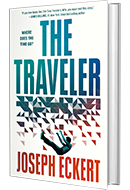Notes: General Retailers' November Drop; Times Top Ten Promo
Not surprisingly, general retail sales for November were dismal: sales at stores open at least a year fell 2.7%, the worst showing since at least 1969, when the International Council of Shopping Centers began compiling data, according to the Wall Street Journal. Only heavy discounting "appeared to work well." Excluding Wal-Mart, same-store sales fell 7.7%.
The Council's chief economist and director of research Michael Niemira called it "an awful start" to the holiday season, adding, "It looks to us as if it will be the weakest holiday season in our record."
Still, many stores beat Wall Street's even more dismal expectations, which helped their stocks yesterday.
Among the few gainers were Wal-Mart, where comp-store sales rose 3.4%, BJ's Wholesale Club, up 4.1%, and Costco, which was up 1%. Most retailers reported sizable comp-store drops: Saks was down 5.2%, Target fell 10%, the Gap was off 10%, Penney was down 11.9% and Macy's fell 13.3%.
Cool idea of the day: The New York Times Book Review is promoting its 10 Best Books of 2008 with a special site where booksellers and librarians may download pdfs and print stickers, shelf talkers and posters for use in the stores. The site also offers Web banners for use on websites. All of the material is free.
---
The Lincoln Bookstore, Charleston, Ill., which sells new and used books, has reopened. The Daily Eastern News has a short vlog featuring the voice of owner Jim East.
The Lincoln Bookstore is located at 619 Monroe Ave., Charleston, Ill. 61920; 217-345-6070.
---
"When the economy is like this, we see probably a 10% increase in business," Richard Hoyt, owner of ABC Bookstore, Chico, Calif., told KHSL-TV. "People, what we call book snobs, think they're only going to buy new books, they're now more willing to buy used books."
---
The Suburban Journals surveys several bookstores in the St. Louis, Mo., suburbs: Main Street Books, St. Charles, Encore Books of Harvester and Rose's Bookhouse, O'Fallon.
At Main Street Books, "We try to make it about location, cozy and homey, because the longer they stay, the more they buy," owner Vicki Erwin said.
"I think the greatest asset we provide for our customers is knowledge," Wendy Drew of Rose's Bookhouse commented. "First and foremost we are book lovers, and if we don't have a title in stock or can't get it in the time frame the customer needs, we try to give them ideas on where and how they can get the book."
---
Omnivore Books on Food is "the best little cookbook store in San Francisco," according to a recent SF Weekly
profile of the bookshop where owner Celia Sack, "a passionate book
collector, cleverly interweaves not just classic cookbooks that remain
in print with the newest, glossiest, irresistibly illustrated
hot-off-the-presses tomes, but also stocks used, rare, collectible,
even precious antiquarian volumes. . . . San Francisco finally has the
cookbook store its own long bookish and famously epicurean history
deserves."
---
Writing for Read Street, the Baltimore Sun's
book blog, Dave Rosenthal recalled that during his visit to Paris last
week, "I was most struck by the rich culture of reading. We stayed in
the Latin Quarter, home of the Sorbonne, and there was a bookstore on
almost every block. . . . It was a joy to see so many stores devoted to
reading--and so many people poring over the shelves. How did we lose
that here in the United States?"
---
The Columbia Journalist profiles Aurora Anaya-Cerda, founder earlier this year of La Casa Azul bookstore, which has begun selling online. Anaya-Cerda had hoped to open a bricks-and-mortar store soon in East Harlem in New York City, but is having trouble finding funding in the current economic climate--she has commitments of about $50,000 but needs another $100,000 before she can open.
Still, many members of the communities want a bookstore to open and have rallied to support La Casa Azul.






SHELFAWARENESS.1222.S1.BESTADSWEBINAR.gif)





 At the 2008 World Economic Forum, Bill Gates proposed an idea for ameliorating world poverty. He dubbed it "Creative Capitalism" and briefly outlined his vision: that successful corporations look more closely at how their business acumen and resources could contribute to fighting disease and poverty while also furthering their business goals either through exploiting previously underserved markets or through recognition for their efforts. Gates provided examples of possible approaches that would provide the incentives he described from his experience at Microsoft and at the Bill and Melinda Gates Foundation. As he emphasized the enormity of the challenge and the need to bring more resources to bear on the problems, he also asked his fellow corporate executives, economists and others to ponder his proposal and generate further ideas.
At the 2008 World Economic Forum, Bill Gates proposed an idea for ameliorating world poverty. He dubbed it "Creative Capitalism" and briefly outlined his vision: that successful corporations look more closely at how their business acumen and resources could contribute to fighting disease and poverty while also furthering their business goals either through exploiting previously underserved markets or through recognition for their efforts. Gates provided examples of possible approaches that would provide the incentives he described from his experience at Microsoft and at the Bill and Melinda Gates Foundation. As he emphasized the enormity of the challenge and the need to bring more resources to bear on the problems, he also asked his fellow corporate executives, economists and others to ponder his proposal and generate further ideas.